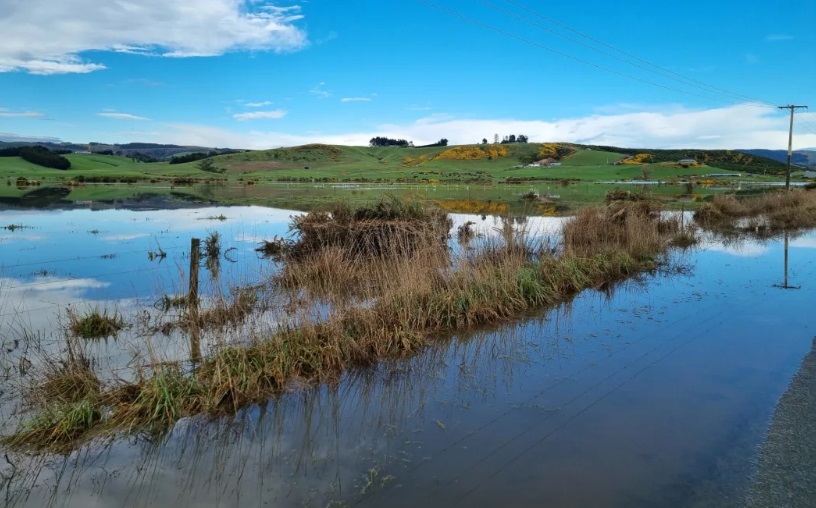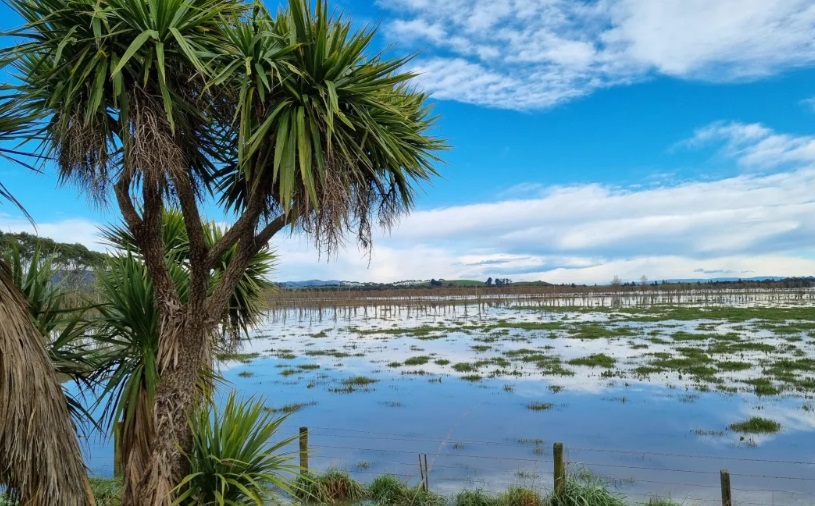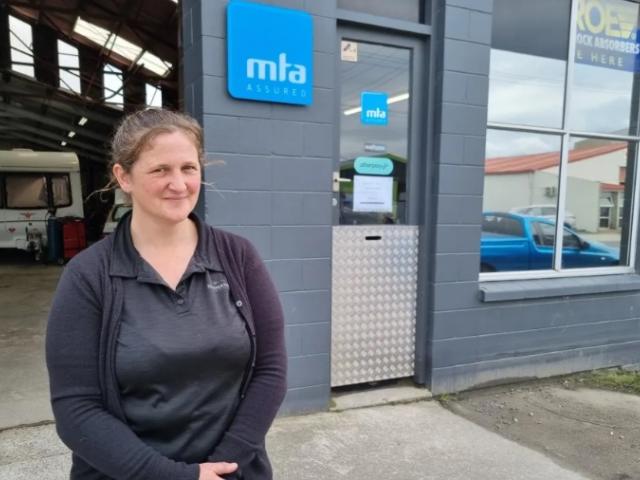
Farms across Otago's Clutha district are still under water after last week's floods, and there are fears if it is not gone soon, the effects will be felt well into next year.
Farmers are dealing with stock losses, bringing in extra feed, and sending cows elsewhere for milking.
Clutha District deputy mayor Ken Payne, who is also a tutor at rural education institute Telford, said they were in a dilemma.
A third of Telford's farmland was under water, including its milking platform, he said.

Telford dairy farm manager Kelvin Gerken said the pressure was on to get the water off the land, and he was bringing in an extra pump to get that done.
"We've just got to try and get it off as fast as we can and as efficient as we can," he said.
Some land could be out of action for three months by the time the water drained, the land dried, and grass was sown and grown, which was devastating, he said.
And a potential "ginormous" financial loss - hundreds of thousands of dollars - could be on the cards if action could not be taken soon, he said.
"We've got mating in three weeks, and if you don't get that right now, you're buggered for next year, so it's not just this season that's taking a hit, it could be next season."
Down the road, Mark Sheppard's 400 hectare Romahapa sheep and beef farm was mostly okay - aside from some fences that needed fixing.
Over the weekend he helped farmers organise extra feed and other farms to receive stock that could not be fed or milked.

"They couldn't go to Southland, they couldn't really go to South Otago district on the hills, so we looked towards North Otago, and I had milking platforms up there organised for them, for a number of cows."
The farms would be fine in time, with friends and family mucking in to clean up, but the heavy rain had taken its toll, he said.
"It's been pretty tough in the whole community to be honest, just driving around and seeing some of the damage to their properties, some of them down there [on the flats] have done it pretty tough.
"You can see it when you meet them, just emotionally ... you can see the drain it's had on them."
Regional council admits it could have acted sooner
Concerns had been raised in the rural community about the timing of Otago Regional Council's decision to cut into the floodbank at the Puerua River and let water drain faster.
Council science and resilience general manager Tom Dyer said the council received calls about it on Thursday, met with farmers to discuss it on Friday, and made the cut on Saturday evening.

"It could have been a little bit quicker, but we were under a regional flood scenario managing a whole bunch of schemes," he said.
"Organising ... plant and equipment to get in and undertake a cut like that in the middle of a flood is a bit of a task, when you've got people stretched everywhere and trying to make sure we're monitoring everything appropriately."
The floodbank would now be put back into place and the council would add more culverts that would have the same effect as the cut did, "so this won't be a problem again", Dyer said.
'Our life has sort of just gone down the drain'
Meanwhile, on the outskirts of Balclutha, more than a dozen businesses are trying to get back on their feet after last week's floods.
Business owners on Frances St told RNZ the water went from pooling on their properties in the industrial area to completely flooding them in less than an hour during heavy downpours on Friday morning.
Bronwyn Finch owns MV Motors with her husband Allan, and said the past few days had been surreal and devastating.

Tens of thousands of dollars worth of machinery was damaged, and the couple were hopeful insurance would cover it all. Some customers' cars in the workshop had flooded, too.
There was not enough time to move anything, Finch said. When they realised how fast the water was rising, it was too late.
The office had 300mm of water inside, and needed to be completely stripped out.
After staff and friends put in a couple of massive shifts over the weekend to get things cleaned up, the workshop reopened on Monday, but it would not be at full capacity until all the equipment could be replaced.
They were doing everything they could to stay afloat - not just for their own livelihoods, but for their staff, she said.
"If we don't continue running, they're not going to have a job either," she said.
"We're doing the best we can in a rough situation."
That was helped by the community who mucked in to help clean up and help them open again so soon, Finch said.
Across the road, Clutha Panel Repairs owner Dave Mcdiarmid said the flood was "hectic" and destroyed the office and lots of equipment - but they managed to save customers' cars.
He faced about $100,000 worth of damage - which he hoped insurance would cover.

Like MV Motors, staff pitched in for a "major clean-up" and they were open for business again on Monday.
Deputy mayor Ken Payne was worried about the effect of the flood on the community's small businesses.
"If they all had to close, what would that do to Balclutha, it's a scary thought."
But the community was tough and resilient, he said.
"They spent all weekend, some of them 17 to 18 hours on Saturday just cleaning their workshops up so they could be back in business on Monday morning, incredible effort from them," he said.
Clutha District Council said on Tuesday it would review the flood, including the effect on properties in the industrial area, after concerns were raised about its management of a nearby flood bank and pump station.














